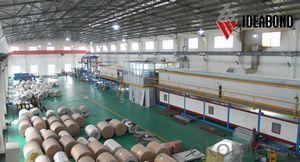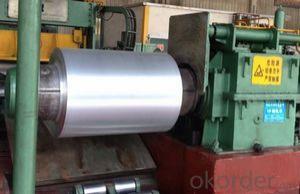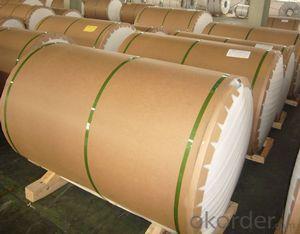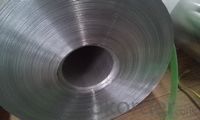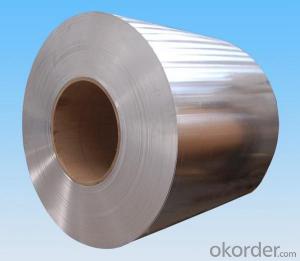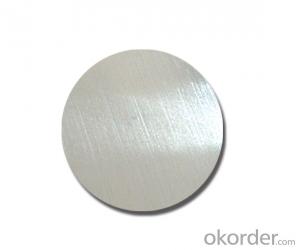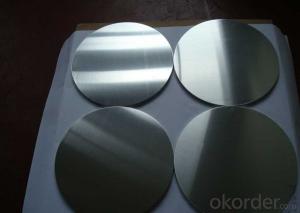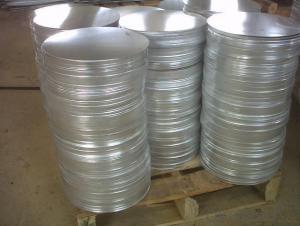Hvac Aluminum Coils - AA 1050 Aluminium Circles Suitable for Anodizing
- Loading Port:
- Shanghai
- Payment Terms:
- TT OR LC
- Min Order Qty:
- 20 m.t.
- Supply Capability:
- 600000 m.t./month
OKorder Service Pledge
Quality Product, Order Online Tracking, Timely Delivery
OKorder Financial Service
Credit Rating, Credit Services, Credit Purchasing
You Might Also Like
supply Mill-finished / coated aluminum circles /sheet/ coil:
Alloy: AA1050,1060,1100,1200,2024,3003,3304,3005,3015,5052,5086,5754,5083,6061,7050,7475,8011, etc
Temper: O, H14/16/18/22/24/32/ H112/H321/T6,T851,T7451,T7351, etc
Thickness: 0.02mm—20mm
Width: 100mm—2000mm (Can be slitted)
Notice: PE coating / PVDF coating / Embossment can be done if required.
- Q: Are aluminum coils suitable for coil slitting applications?
- Yes, aluminum coils are suitable for coil slitting applications. Aluminum is a versatile and lightweight material that can be easily processed and slit into various widths, making it ideal for industries like automotive, construction, and packaging. Its high strength-to-weight ratio and corrosion resistance make aluminum coils a reliable choice for coil slitting applications.
- Q: Four roller rolling mill roller bearing on the aluminum top how always have holes, in the production process, will be printed on just above the work roll, the work roll used in less than a day, it will produce a pothole, and aluminum plate will be printed from the upper supporting roller above the straight line, the line in the above there are holes.
- Do not know your factory function division, should have special polishing work roll, support roller grinding workshop, this problem should be addressed to them, sticks are not qualified, how can dry out qualified products?
- Q: I'm having trouble with another chem problemAluminum sulfide reacts w/water to form aluminum hydroxide and hydrogen sulfide. Write the balanced chemical equation for this reaction and find how many grams of aluminum hydroxide are obtained from 14.2 g of aluminum sulfide.I already found the balanced equation but I need help on finding how many grams of aluminum hydroxide are obtained from 14.2 g of aluminum sulfide. Can someone please explain how it's done?
- No way!! because of the fact inspite of the bat, the helmet and the shin guards the undergo is plenty larger than a human and is going to basically get mad from the bat and kill you. Nope $800,000 isn't something for that!
- Q: This question asks for an explanation of the various materials used for coating aluminum coils.
- <p>Aluminum coil coating materials can be categorized into several types, including: 1. Organic coatings, such as polyester, acrylic, and polyvinylidene fluoride (PVDF), which offer good weather resistance and color stability. 2. Inorganic coatings, like fluoropolymers, which provide exceptional chemical resistance and high-temperature stability. 3. Metal coatings, such as zinc or other metals, used for enhanced corrosion resistance. 4. Ceramic coatings, which are known for their high durability and resistance to heat and chemicals. 5. Laminates, which combine multiple materials for specific performance characteristics. These coatings are chosen based on the intended application of the aluminum coil, such as in construction, automotive, or packaging industries.</p>
- Q: What are the different grades of aluminum used in coils?
- There are several different grades of aluminum commonly used in coils, including 1100, 3003, 5052, and 6061. Each grade has its own unique characteristics and properties, making them suitable for different applications. For example, 1100 aluminum is known for its excellent corrosion resistance and high thermal conductivity, making it ideal for heat exchangers and fins. On the other hand, 5052 aluminum offers good formability and moderate strength, making it commonly used in automotive and marine applications. Lastly, 6061 aluminum is a versatile grade with excellent strength-to-weight ratio, making it suitable for structural components and aerospace applications.
- Q: What is the modulus of elasticity of aluminum coils?
- The modulus of elasticity of aluminum coils is typically around 70 GPa (Gigapascals).
- Q: What are the common surface defects or issues in aluminum coils?
- Some common surface defects or issues that can be found in aluminum coils include: 1. Scratches: These are visible marks on the surface of the coil caused by contact with abrasive materials or improper handling during production, transportation, or storage. 2. Streaks: Streaks are long, narrow lines or bands that appear on the surface of the coil. They are often caused by irregularities in the rolling process or the presence of impurities in the aluminum material. 3. Dents: Dents are localized depressions or deformations on the surface of the coil. They can occur due to mishandling, accidental impacts, or improper storage practices. 4. Corrosion: Aluminum is generally resistant to corrosion, but certain environmental conditions or exposure to corrosive agents can lead to the formation of oxide layers or pitting on the surface of the coil. 5. Edge cracks: These are cracks or fissures that occur along the edges of the coil. They can be caused by improper cutting or shearing techniques during the manufacturing process. 6. Surface roughness: Surface roughness refers to an uneven or bumpy texture on the surface of the coil. It can be a result of inadequate smoothing or finishing during the rolling or processing stages. 7. Oil stains: Oil stains are dark or discolored areas that appear on the surface of the coil. They can occur due to improper cleaning or lubrication during the production process. 8. Coil set: Coil set refers to the tendency of the coil to retain a curvature or shape after unwinding. It can be caused by stresses induced during rolling, coiling, or cooling, leading to a non-flat and uneven surface. 9. Roll marks: Roll marks are patterns or imprints left on the surface of the coil by the rolling mill or equipment. They can be caused by uneven pressure or improper alignment of the rolling tools. 10. Discoloration: Discoloration refers to changes in the color or appearance of the aluminum surface. It can occur due to exposure to high temperatures, chemical reactions, or oxidation. These surface defects or issues can negatively impact the appearance, quality, and performance of aluminum coils. Manufacturers and users should be aware of these defects and take appropriate measures to prevent or minimize their occurrence.
- Q: Can aluminum coils be recycled multiple times?
- Aluminum coils possess the remarkable ability to be recycled numerous times. This is due to the fact that aluminum is an exceptionally recyclable substance, and its quality remains unaltered throughout the recycling process. As a result, aluminum coils can be melted and reshaped into fresh coils on multiple occasions, without experiencing any deterioration in their performance or characteristics. The act of recycling aluminum not only aids in the preservation of natural resources, but it also conserves a significant amount of energy compared to the production of new aluminum using raw materials. Consequently, opting for aluminum coils is a sustainable and eco-friendly decision, as they can be recycled multiple times.
- Q: I have a electrical project to do, and could save about $300.00 by using aluminum wire since I can get it free, but I have never used aluminum before, and am not sure if it is a good way to go.
- I would not recommend it. Aluminum wire expands and contracts a great deal causing the connections to become loose, or break. That is what I was taught.
- Q: Can aluminum coils be used for automotive applications?
- Indeed, automotive applications can utilize aluminum coils. Aluminum, being a lightweight and resilient substance, presents numerous benefits within the automotive sector. Its resistance to corrosion proves advantageous for vehicles that face diverse weather conditions. Furthermore, aluminum coils possess commendable thermal conductivity, enabling them to efficiently disperse heat. This attribute proves crucial for automotive utilities like radiators and heat exchangers. Additionally, the ease with which aluminum coils can be molded and shaped renders them suitable for manufacturing a wide array of automotive components. Ultimately, incorporating aluminum coils into automotive applications can lead to reduced weight, heightened fuel efficiency, and improved performance.
Send your message to us
Hvac Aluminum Coils - AA 1050 Aluminium Circles Suitable for Anodizing
- Loading Port:
- Shanghai
- Payment Terms:
- TT OR LC
- Min Order Qty:
- 20 m.t.
- Supply Capability:
- 600000 m.t./month
OKorder Service Pledge
Quality Product, Order Online Tracking, Timely Delivery
OKorder Financial Service
Credit Rating, Credit Services, Credit Purchasing
Similar products
Hot products
Hot Searches
Related keywords
